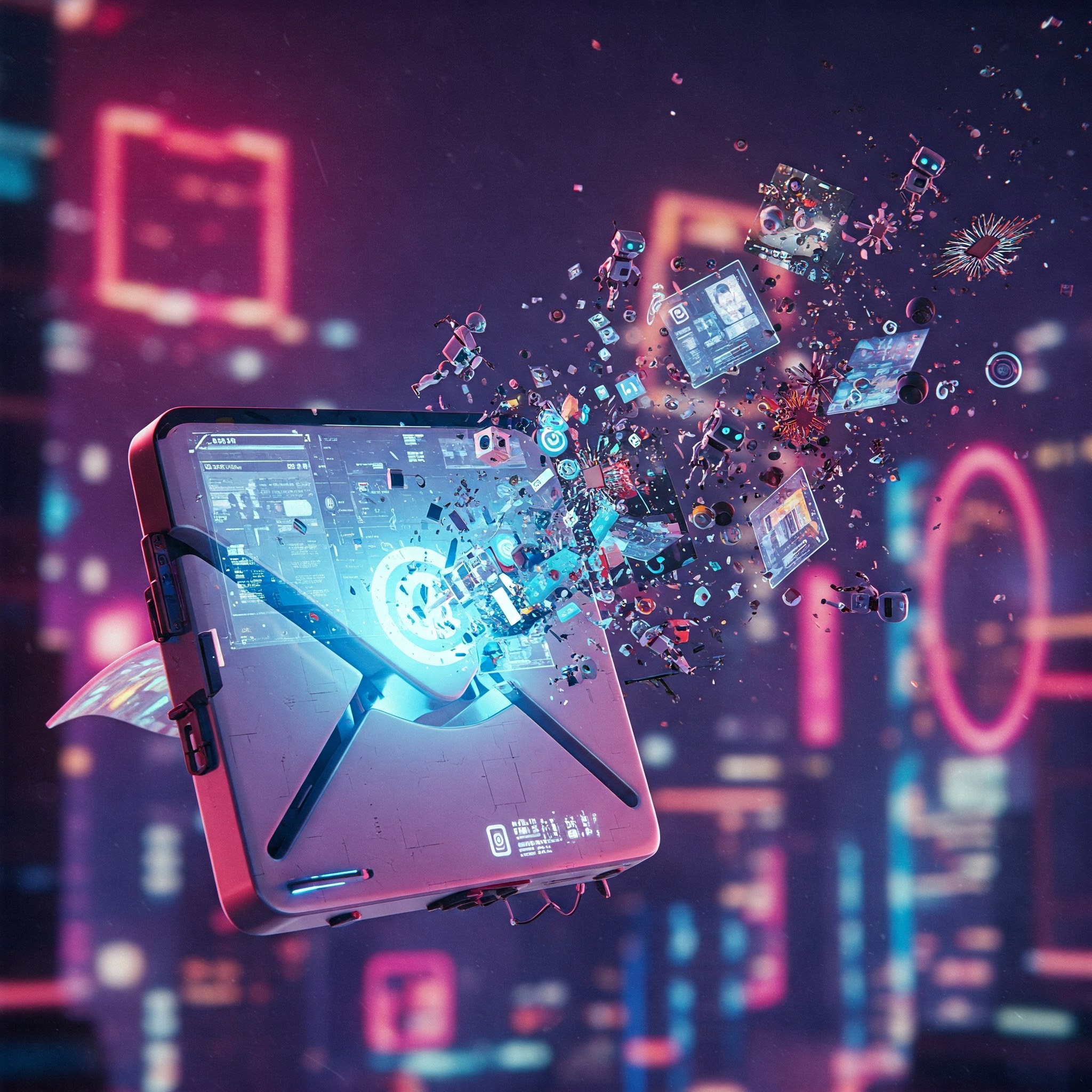Lights, Camera, Algorithm: AI’s Red Carpet Debut in 2025
Forget the craft services table laden with lukewarm coffee and questionable pastries. The real fuel of filmmaking in 2025? Cold, hard, processing power. AI filmmaking is here, it’s evolving faster than a plot twist in a Christopher Nolan film, and it’s raising eyebrows faster than a poorly-delivered line reading.
The TL;DR for the Terminally Online
AI’s not just touching up blemishes in post anymore. It’s rewriting the rulebook, pixel by pixel. We’re talking AI tools capable of manipulating camera angles after shooting, conjuring 3D environments out of thin air, and letting you edit images with text. Because, let’s face it, sometimes explaining what you really want is easier with words than gestures.
AI: The Swiss Army Knife of Cinema
- Post-Production Miracles: Remember that perfect shot ruined by a rogue boom mic? Now, you can subtly adjust the camera angle after principal photography. Call it divine intervention or call it algorithmic wizardry, the results are the same: less reshoots, more creative control. How long until we can reshoot entire performances this way is the question.
- Cloud-Based Resolutions: Freepik’s partnership with Topaz Video AI offering 4K upscaling is a game changer. No more grainy flashbacks looking like they were filmed on a potato. But, is it enough to save ‘Cats’? (Probably not.)
- Bespoke AI Models: Want an AI that exclusively recognizes, say, your protagonist’s lucky coffee mug? Now you can train one. The implications for targeted advertising (and general creepiness) are staggering.
- 3D World Building Without the Blue Screen Blues: Stability AI and Hunan are making 3D environment and character generation a reality. Forget building elaborate sets; now you can just prompt them into existence. Will this lead to filmmakers becoming even more detached from reality? Jury’s still out.
- Text-Based Image Manipulation: Google Gemini 2.0 lets you edit images with text prompts. It’s like having a super-powered Photoshop at your beck and call. Expect a surge in creatively… questionable… deepfakes.
Rise of the AI Video Overlords?
Elon Musk’s X.AI acquiring Hotshot, an AI video generation tool, is a declaration of war… on low-effort content. Meanwhile, Vase, a Chinese AI video generator, boasts features like motion tracking, in-painting, and style transfer. Will these tools democratize filmmaking or simply flood the internet with even more AI-generated cat videos? Only time (and bandwidth) will tell.
When Gaming and Filmmaking Collide (and Maybe Have Babies)
Roblox’s 3D asset generator, fueled by text prompts and accessible via API, is blurring the lines between gaming and filmmaking. Imagine creating a film where assets are literally generated on-demand. The possibilities are… interesting. The legal ramifications, even more so.
Independent Filmmakers: The Unlikely AI Pioneers
Fabric AI reports that 70% of AI film studios are small, bootstrapped teams. This isn’t the studio system of old. It’s a digital wild west where anyone with a laptop and a dream (and a subscription to an AI video generator) can create a movie. The Atlanta AI Film Festival, meetups in Shanghai and Palm Beach, and competitions hosted by Promise and Curious Refuge help these brave new digital cowboys find each other. Will a new auteur theory develop around prompt engineering?
Disney + NVIDIA = Sentient Animatronics?
Disney’s collaboration with NVIDIA to enhance robotics and animatronics has terrifyingly exciting implications. Expect Disneyland to get a whole lot more… lifelike. Just don’t make eye contact with the animatronic Mickey Mouse for too long.
From Motion Tracking to Animated Emojis: The Niche is Now
Wonder Dynamics is using motion tracking in The Electric State and Luma’s creating AI-powered animated emojis. It all sounds like science fiction. But, is it good science fiction? That’s the question that we’ll all need to answer soon.
The End (of Traditional Filmmaking)?
AI filmmaking isn’t just a trend; it’s a tectonic shift. It’s democratizing access, streamlining workflows, and pushing creative boundaries. Whether it leads to a cinematic renaissance or a homogenous blob of AI-generated content remains to be seen. One thing’s for sure: Hollywood’s about to get a whole lot weirder.

